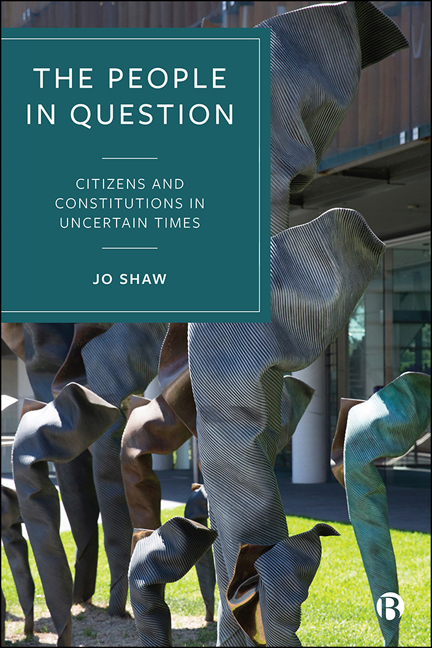1 - Introduction
Published online by Cambridge University Press: 18 March 2021
Summary
CITIZEN: A member of a free city or jural society, (civitas) possessing all the rights and privileges which can be enjoyed by any person under its constitution and government, and subject to the corresponding duties. (Black 2004 [1891], 206)
Why constitutional citizenship?
It has become rather fashionable to express negative views about citizenship and not to hold it in high regard. If states can put their citizenship on the market in return for what, to high net worth individuals, probably seems like only a relatively small charge or investment, why should everyone else treat citizenship with reverence? Surely, citizenship today is just a matter of passports and mobility, and not a lot else? What is more, is it not a little odd to focus on something which is just a form of ‘legalized discrimination’ against aliens (Wimmer 2013, 74)?
The alternative view recognizes that citizenship has acquired a fundamental importance in relation to the organization of human affairs into polities. As such, it may be an empty vessel into which many different types of political aspiration can be poured, but its significance cannot be denied. It allows states to choose populations, but also to control them. Some of the most egregious crimes against humanity such as slavery, the Holocaust and apartheid have all involved the stripping and/or denial of ‘citizenship’ (Lewans 2010). Citizenship has also played a role in the breakup of Yugoslavia and in the human suffering that followed thereafter (Štiks 2015), in the violence and persecution that the Rohingya in Myanmar have faced as a people (Parashar and Alam 2019), and in the continued oppression of minorities mainly identified by reference to religion in India, culminating – for now at least – in the denationalization of up to 2 million people in Assam (Jayal 2019a). Lacking or being refused the status of citizen has been part of a rhetoric of depersonalization applied in all of these cases.
Citizenship, as it is applied within states, is the legal mechanism for formal membership within the polity. There is an important external aspect of state-based citizenship, organizing individuals primarily by reference to the territorial and jurisdictional boundaries of states, and reinforcing the legally constructed character of that membership relation.
- Type
- Chapter
- Information
- The People in QuestionCitizens and Constitutions in Uncertain Times, pp. 3 - 34Publisher: Bristol University PressPrint publication year: 2020

